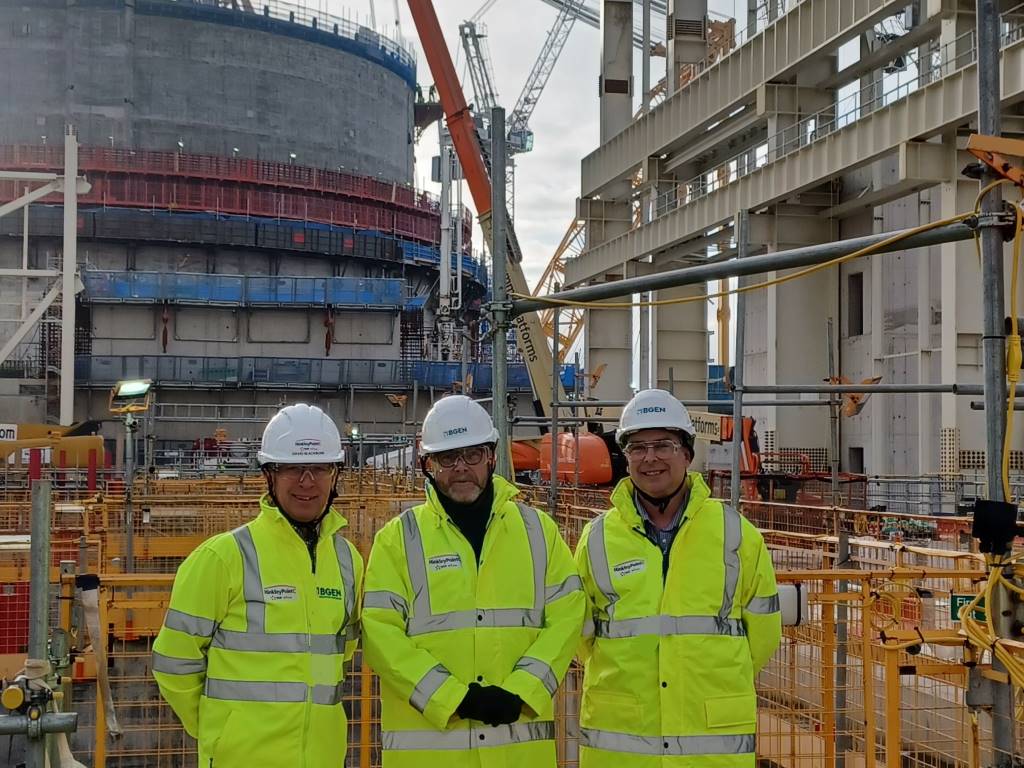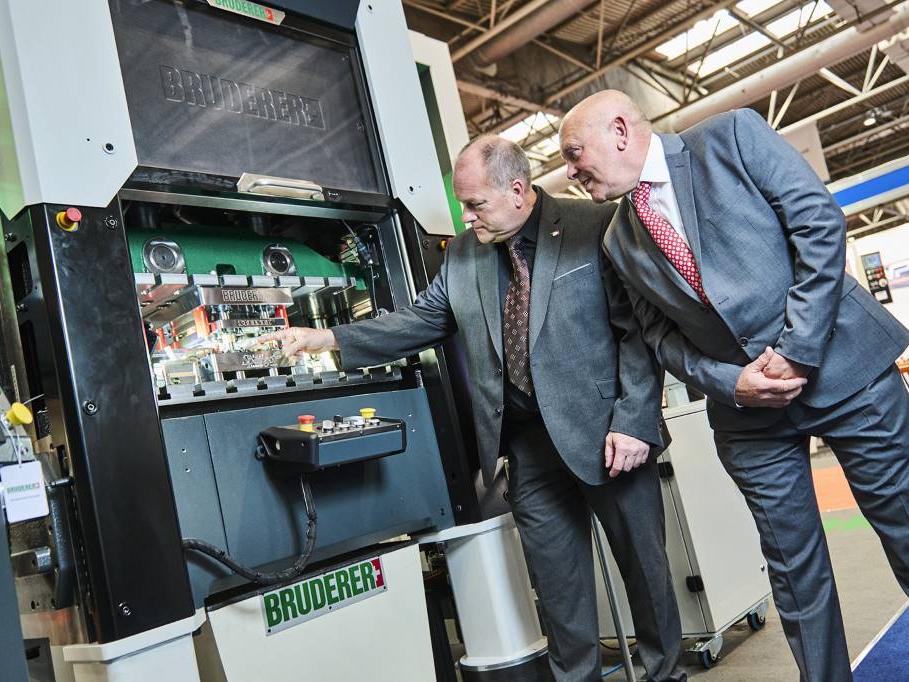UK manufacturing; going above and beyond

Extracting any positives from the effects of the Coronavirus pandemic is tough –but the sterling work carried out by UK manufacturers producing vital components for ventilators is a notable exception. In the first of a two-part article, Dave Tudor speaks to four companies – all Star GB sliding head machine users – that contributed significantly to the VentilatorChallengeUK initiative to get vital medical equipment to where it was needed most – the frontline.
For the eight businesses that form the foundation of this overall article, VentilatorChallengeUK work wasn’t about making profit – it was about making a difference – indeed some companies barely broke even or even made a loss. It didn’t matter. It was all hands on pumps in probably the greatest collaborative effort made by the UK manufacturing community since the Second World War.
Neida Products
Neida Products employs 120 people across sites in Stoke-on-Trent and Freshwater on the Isle of Wight, specialising in turned and milled parts on 120 machines. David Brown is its commercial director.
“After initial contact from Rolls-Royce on a Saturday at the end of March, we received 28 drawings on the Sunday,” he recalls. “It was evident that our Star machines would be pivotal in the work we were about to undertake so a conference call was scheduled for early Sunday morning between Rolls-Royce, Star and Neida.”

Neida was tasked with producing 12 items totalling 90,000 parts to be delivered in seven days. It was producing the first parts by the Monday evening.
“Over the next two weeks we had to produce parts made from Ertacetal – a material that we were unfamiliar with but with Star’s support we were able satisfy the requirement,” Mr Brown affirms. “One part in particular was challenging – produced in Ertacetal from a material size of 22mm with a turned diameter down to 7mm whilst holding a 10µm hole diameter and positional tolerance of 100µm on unstable material.”
290,000 parts later, a project that was initially expected to last only seven days ended up spanning eight weeks. All but two items were produced on Star sliding head machines. The components ranged in size from sub-4mm with small turned diameters and 0.8mm diameter drilled holes to components that had to be produced on its Star SR-38 Type B and ST-38 machines due to size and number of features.
David Brown has nothing but praise for his employees: “The ventilator project gave us a fresh focus at a time when being at work was being questioned due to the coronavirus pandemic,” he says.
“It was heartening that the entire workforce embraced the challenge, working extended hours and weekends to ensure we could satisfy the customer. We’re immensely proud of the achievement of our employees companywide in making this happen.”
It’s a similar story with Neida’s suppliers: “The support we received from our tooling suppliers, often supplying newly produced tools within 24 hours, was fantastic – as was the help received from Star who loaned machinery and attachments to ensure the project was successful. It went far and beyond any customer and supplier relationship we have ever experienced.”
RDL Technologies
Leicester turned parts specialist RDL Technologies’ involvement with VentilatorChallengeUK began with an enquiry from Rolls-Royce.

“The initial call was to establish if we had capacity,” explains managing director, Ray Lockwood. “We then had direct contact from one of the teams at Rolls on 28th March. We shipped our order of five parts with quantities of 8,000-off on each on Monday 6th April, so from contact to delivery was nine days.
“The components we produced were all internal parts for the ventilator – all made from brass and quite small dimensionally. The specified tolerances were well within our capabilities,” he says.
“This was 100% a team effort. My staff are some of the best I have worked with and nothing is too much trouble. I only have to ask and I know that they will always go the extra mile for the company. We had to work over the weekend of 4-5 April to complete the parts on time but they took it all in their stride.”
He continues: “My wife and I had only just recovered from the virus a few days before the call so when it came it was a no brainer that we would do our bit for the cause. Luckily we weren’t hospitalised. The whole company is very proud to be associated with VentilatorChallengeUK.
“The parts were all manufactured on Star sliding head machines. We have 17 machines ranging from 10mm diameter capacity to 38mm capacity and they’re the backbone of our business. Without them and the support from all the staff at Star I have no doubt that we would not be in the position that we are in the marketplace now.”
Kadel Engineering
“Kadel Engineering had just purchased its second Star SR-32JII Type B sliding head lathe a couple of months prior to the coronavirus pandemic,” reveals managing director, Paul Rollins.
“Normally we are heavily involved with producing small precision parts for Formula 1 cars so we’re used to working under pressure to achieve tight tolerances and meeting very short lead- times with critical parts that have to be right first time.
“Consequently with the temporary suspension of F1 racing due to coronavirus, we were ideally placed with the equipment and knowledge to provide immediate capacity on our new machine to manufacture ventilator parts.”
Mr Rollins received an email on a Saturday evening from a buyer at Rolls-Royce: “We hadn’t worked with Rolls before so this was exciting in itself. I knew it was something we could do; it would also be ideal for our new machine,” he says.
Kadel was tasked with manufacturing 8,000 parts for the silence button on the Smiths Medical ParaPAC portable ventilator. To meet the timescales, 1,000 components were required per day.
“The parts were made from acetal plastic which is always a challenge as they are softer than metals and swarf tends to be very stringy,” Mr Rollins affirms. “The Star sliding head was ideal to tackle these problems with plenty of high-pressure coolant and its HFT (High Frequency Turning) capability. The tolerances and surface finish were very important on the parts but neither was a problem on the new machine.
“My main turner Tom Ireland was a fantastic help,” Mr Rollins explains. “Firstly through his input to program and set the machine to get the job up and running and overcome all the difficulties; and then his dedication and commitment by working 12 hours a day including over the weekend to make sure we got the parts done and shipped out on time. We certainly couldn’t have done it without him.”
Mr Rollins is in no doubt that the new Star SR-32JII Type B was pivotal in being able to produce these parts within the timescale. Its sub-spindle was able to perform second op work while the first end was being machined, enabling the parts to come off the machine complete.

“The assistance and response from Star GB in helping me get the collets and tooling I required quickly and the application department’s input to improve the manufacturing method was also greatly appreciated,” he says.
Yorkshire Precision Engineering
“Yorkshire Precision Engineering responded to the email from Government; it was a tick box listing showing categories we could assist in,” explains company finance and sales director Lynda Laybourne.
“We received an NDA mid-March from Rolls-Royce Aerospace which was followed by the drawing and volumes required. Once it was established that we could produce the part and hit tight targets, a phone conference call was planned. From receipt of authority to proceed we manufactured 12,000 brass and plastic components.”
Yorkshire Precision manufactured two parts: 8,000 turned relief valve seats within a week and 4,000 milled housings over a three week period. The valve seat was produced from brass with a number of tight tolerances and the housing was a multi-featured part manufactured from acetal in three operations.
“The team managed to complete all manufacturing processes including first article inspection reports, sourcing material and tooling and producing 8,000 parts within a calendar week. We split shifts and worked 24/7, including the entire Easter break to ensure the parts were ready – all under the challenges of COVID-19 restrictions,” Ms Laybourne recalls.
“We feel very privileged and proud to have taken part in such a vital fight against the virus and help the NHS. The Health Secretary Matt Hancock said the ‘ingenuity and innovation shown by companies involved had been truly awe-inspiring’.”
She adds: “The turned parts were produced on three Star machines to enable us to hit the quantities in the timescale required: SR-20J, SR-32J and SV-32J. We needed a special adaptor for one lathe and Star arranged for this to be hand-delivered early the next morning. Without this we couldn’t get our third lathe producing parts so it was a huge help. The milled housing was produced on a Bridgeport Hardinge VMC1000H.”
Neida Products www.neida.co.uk
RDL Technologies www.rdltechnologies.co.uk
Kadel Engineering www.kadel.co.uk
Yorkshire Precision Engineering www.ypel.co.uk
Star GB www.stargb.com














